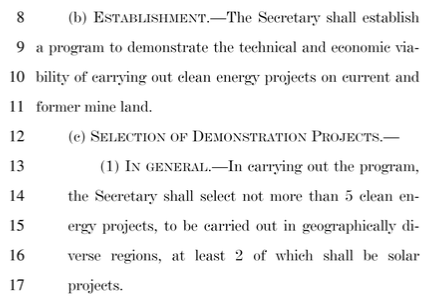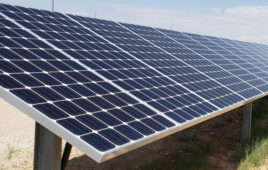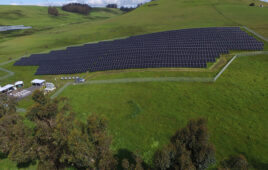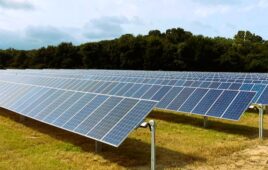The U.S. Senate voted to pass the $1 trillion infrastructure bill that contains provisions for energy storage development and power grid upgrades that could support increased solar deployment. The Energy Storage Association applauded the passage but pushed for a standalone storage ITC in future legislation.
“We commend the U.S. Senate for coming together to pass bipartisan infrastructure legislation that supports clean energy growth,” said ESA Interim CEO Jason Burwen in a statement. “ESA advocated for a number of the provisions included in the bill passed today, which will boost U.S. storage technology manufacturing, increase investments in energy storage and other resilience solutions, and accelerate next-generation storage technologies. However, without the demand-driven approach to energy storage recommended by the Administration, these efforts will be limited in producing the long-term job creation, economic growth, and climate mitigation envisioned in President Biden’s American Jobs Plan. As an investment tax credit (ITC) for standalone energy storage was not included in this legislation, ESA calls on members of the Senate and House to match its bipartisan infrastructure legislation with the storage ITC in future legislation.”
 The more than 2,000-page infrastructure bill also supports clean energy deployment in some roundabout ways, through grid upgrades to bring the energy from mega solar projects in the desert to faraway states (Sec. 40101-40113), as well as plans to retrofit some former mining facilities with solar power (Sec. 40341).
The more than 2,000-page infrastructure bill also supports clean energy deployment in some roundabout ways, through grid upgrades to bring the energy from mega solar projects in the desert to faraway states (Sec. 40101-40113), as well as plans to retrofit some former mining facilities with solar power (Sec. 40341).
The bill now moves to the House of Representatives, where the Progressive Caucus has said it will refuse a vote unless the Senate passes a separate $3.5 trillion social policy bill this fall, according to The New York Times.
A group of lawmakers, led by Representatives Blumenauer, Levin, Barragán, McEachin and Crow, sent a letter to House leadership Tuesday urging them to ensure clean energy tax provisions are included in the House infrastructure package.
“Our world is at a crossroads, and there is an urgent need to deploy more clean energy and significantly reduce the amount of carbon emitted from our electricity sector. This week’s report from the IPCC makes it abundantly clear that we are in the midst of a climate emergency and that we need to act now. The clean energy champions on this letter understand the stakes, and we echo their call to support policies that have a track record of driving clean energy deployment,” said Erin Duncan, VP of congressional affairs for the Solar Energy Industries Association (SEIA), in a statement. “The solar Investment Tax Credit (ITC) is a proven job creator, and a long-term extension with direct pay will help create hundreds of thousands of new career opportunities while giving solar and storage businesses policy certainty to make investments at the scale needed to address climate change.”





Can anyone confirm that the Bill retained the ITC with a direct pay provision? Your article and the comment by Erin Duncan still seems to make that issue aspirational.
““ESA advocated for a number of the provisions included in the bill passed today, which will boost U.S. storage technology manufacturing, increase investments in energy storage and other resilience solutions, and accelerate next-generation storage technologies.””
To “advocate” and what one ends up with may be two different things. Will these “new businesses” spring up and within five to ten years, “offshore” to another country? Jobs in a “new World order” sort of way is not necessarily jobs in the U.S. for economic growth and prosperity. This is not ‘just’ a “field of dreams, build it and (they) will come”, pundit, it is to the very core of national security of this country to supply, elements, materials and services to supply chains in the U.S. NOT dependent on some other Country’s political view of the U.S. in the robustness of supply chains to do business in the manufacturing sector in this Country, by this Country and for this Country’s citizens.